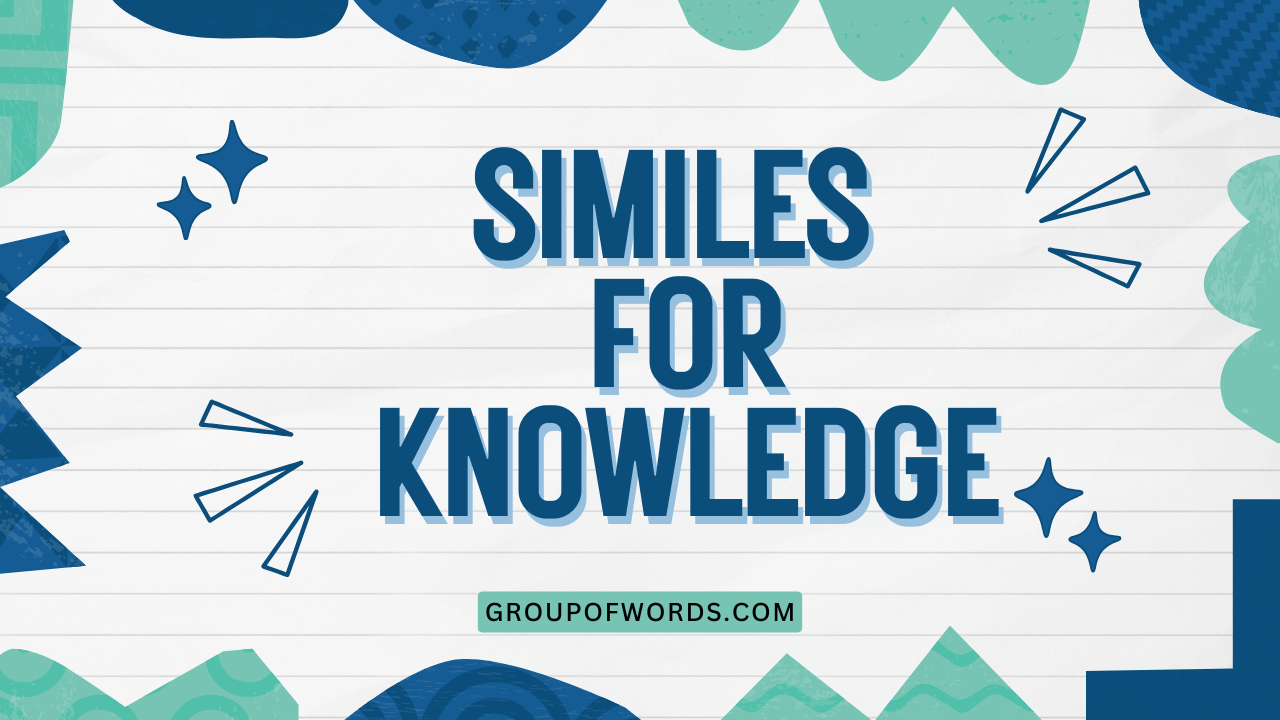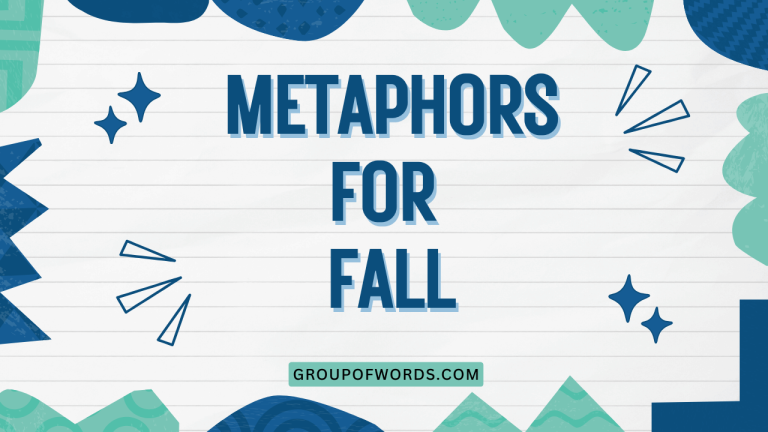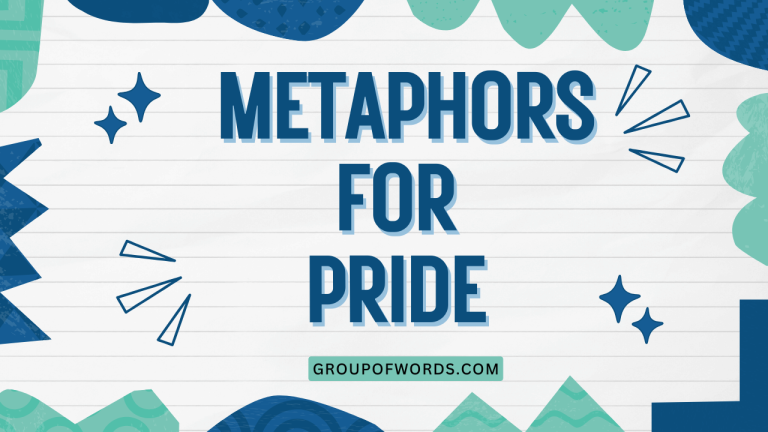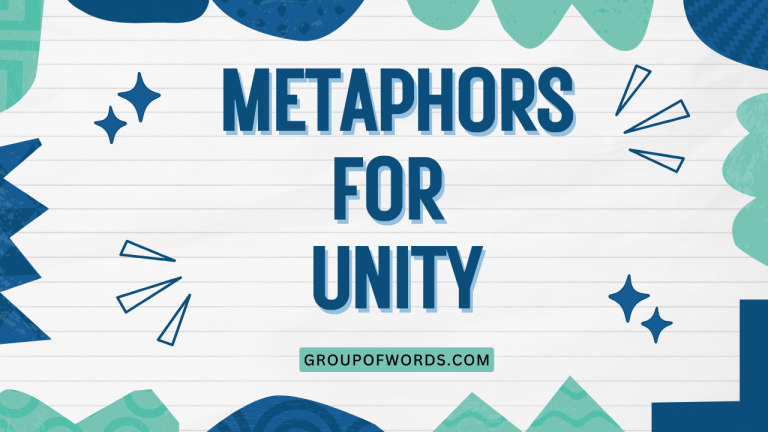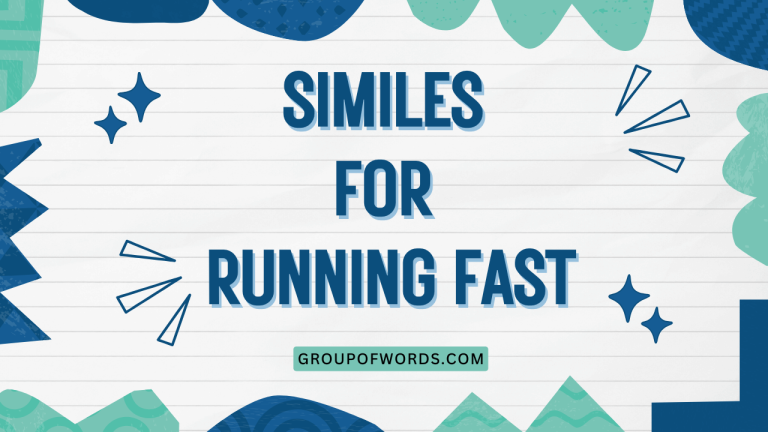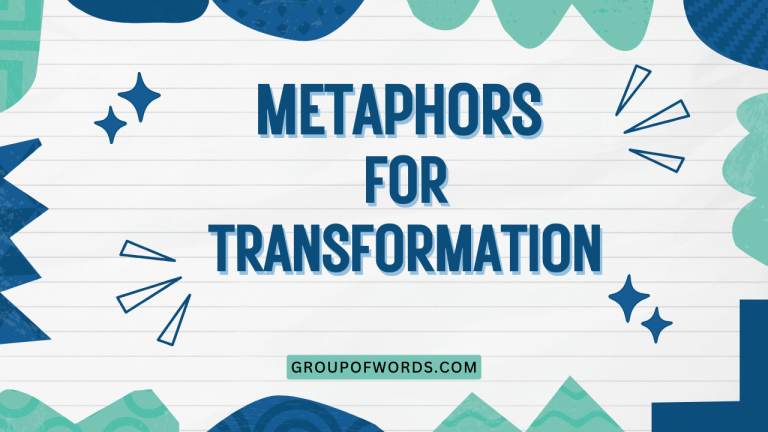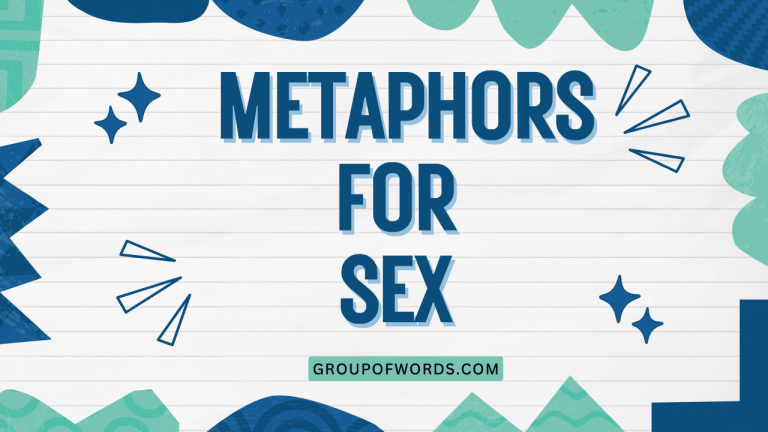Illuminating Insights: Mastering Similes for Knowledge
Understanding and using similes effectively can significantly enhance your descriptive writing and communication skills. Similes, by comparing the abstract concept of knowledge to more tangible things, make it easier to grasp and convey complex ideas.
This article explores the various ways similes can be used to describe knowledge, offering numerous examples, usage rules, and practice exercises. Whether you are a student, a writer, or simply someone who wants to improve their language skills, this guide will provide you with a comprehensive understanding of similes for knowledge.
Table of Contents
- Introduction
- Definition of Simile for Knowledge
- Structural Breakdown of Similes
- Types of Similes for Knowledge
- Examples of Similes for Knowledge
- Usage Rules for Similes
- Common Mistakes with Similes
- Practice Exercises
- Advanced Topics in Similes
- Frequently Asked Questions (FAQ)
- Conclusion
Introduction
Similes are powerful literary devices that enrich language by creating vivid comparisons. When used to describe knowledge, they transform abstract concepts into relatable images, making complex ideas more accessible and memorable.
This article will delve into the art of crafting and understanding similes specifically related to knowledge, providing a comprehensive guide for learners of all levels. By exploring various examples, usage rules, and practice exercises, you will gain a deeper appreciation for the nuances of language and enhance your ability to communicate effectively.
Whether you are a student striving for better grades, a writer aiming to captivate your audience, or simply an individual eager to expand your linguistic repertoire, mastering similes for knowledge will undoubtedly prove beneficial. This guide aims to equip you with the necessary tools and insights to confidently use and interpret similes in various contexts, ultimately enhancing your overall communication skills and understanding of the English language.
Definition of Simile for Knowledge
A simile is a figure of speech that compares two unlike things using “like” or “as.” When applied to “knowledge,” a simile draws a parallel between the abstract concept of understanding, learning, or information and something more concrete, tangible, or relatable. This comparison helps to illuminate the nature of knowledge, making it easier to visualize, understand, and appreciate.
The function of a simile for knowledge is to provide a clearer, more engaging, and often more memorable description of what knowledge is, how it feels, or how it impacts a person or situation. It adds depth and color to writing and speech, making it more persuasive and impactful.
By using similes, we can transform complex concepts into readily understandable imagery.
Similes for knowledge can be used in various contexts, including:
- Academic writing: To explain complex theories or ideas in a simpler way.
- Creative writing: To add depth and imagery to descriptions of characters, settings, or events.
- Everyday conversation: To express understanding or lack thereof in a more vivid and engaging manner.
- Speeches and presentations: To make abstract concepts more relatable to the audience.
Structural Breakdown of Similes
A typical simile consists of three key elements:
- The subject: In this case, “knowledge” or an aspect of knowledge (e.g., learning, understanding, wisdom).
- The connecting word: Usually “like” or “as.”
- The object of comparison: A concrete or relatable thing that shares a quality with the subject.
The basic formula for a simile is: Subject + Connecting Word + Object of Comparison. For example: “Knowledge is like a vast ocean.” Here, “knowledge” is the subject, “is like” is the connector, and “a vast ocean” is the object of comparison.
It’s important that the object of comparison shares a relevant characteristic with the subject. In the example above, both knowledge and a vast ocean are expansive, potentially overwhelming, and full of undiscovered depths.
The strength of a simile lies in its ability to create a vivid and meaningful connection between two seemingly different things. A well-crafted simile can provide a new perspective on knowledge, making it more accessible and understandable.
Types of Similes for Knowledge
Similes for knowledge can be categorized based on the specific aspect of knowledge they emphasize or the type of object they use for comparison. Here are some common categories:
Similes Emphasizing the Vastness of Knowledge
These similes compare knowledge to things that are immense, boundless, or extensive. They highlight the idea that there is always more to learn and that the scope of knowledge is virtually limitless.
Similes Emphasizing the Power of Knowledge
These similes compare knowledge to things that are strong, influential, or transformative. They emphasize the ability of knowledge to change perspectives, solve problems, and empower individuals.
Similes Emphasizing the Value of Knowledge
These similes compare knowledge to things that are precious, important, or beneficial. They highlight the idea that knowledge is a valuable asset that can enrich lives and contribute to success.
Similes Emphasizing the Process of Acquiring Knowledge
These similes focus on the act of learning and understanding, comparing it to processes like building, growing, or discovering. They emphasize the effort, patience, and persistence required to gain knowledge.
Similes Emphasizing the Clarity of Knowledge
These similes compare knowledge to things that are clear, bright, or illuminating. They highlight the ability of knowledge to dispel confusion, provide insight, and shed light on complex issues.
Examples of Similes for Knowledge
The following sections provide a wide range of examples, categorized by the aspect of knowledge they emphasize. Each example aims to illustrate how similes can be used to create vivid and meaningful comparisons.
Examples Emphasizing the Vastness of Knowledge
This table presents similes that emphasize the boundless and extensive nature of knowledge. It demonstrates how knowledge can be compared to vast entities to highlight its limitless potential.
| Simile | Explanation |
|---|---|
| Knowledge is like a vast ocean. | Highlights the immense and seemingly endless nature of knowledge. |
| Learning is like exploring an uncharted territory. | Emphasizes the sense of discovery and the unknown aspects of knowledge. |
| His mind was like a library with countless books. | Indicates the extensive collection of information stored in one’s mind. |
| Her understanding of the subject was as deep as a well. | Suggests a profound and thorough comprehension. |
| The universe of information is like an endless galaxy. | Highlights the infinite possibilities and mysteries of knowledge. |
| The more you learn, the more it’s like climbing a never-ending staircase. | Illustrates the continuous and progressive nature of learning. |
| His knowledge was like a sprawling city, full of hidden corners. | Implies a complex and multifaceted understanding. |
| The world of learning is as wide as the sky. | Emphasizes the limitless scope of what can be learned. |
| Her expertise in the field was like a dense forest, full of intricate details. | Suggests a deep and complex understanding of a particular subject. |
| Acquiring knowledge is like navigating a labyrinthine maze. | Highlights the challenges and complexities of the learning process. |
| The scope of his research was as broad as the horizon. | Indicates the extensive and far-reaching nature of his studies. |
| Her knowledge base is like an encyclopedia, covering a wide range of topics. | Implies a comprehensive and diverse understanding. |
| The amount of information available is like grains of sand on a beach. | Emphasizes the sheer volume of knowledge in the world. |
| His understanding of history was as vast as time itself. | Suggests a deep and comprehensive grasp of historical events. |
| Learning new things is like adding rooms to an ever-expanding mansion. | Illustrates the continuous growth and accumulation of knowledge. |
| The realm of scientific discovery is like an uncharted sea. | Highlights the potential for new breakthroughs and innovations. |
| Her expertise in coding was like a complex network of interconnected systems. | Implies a deep and intricate understanding of programming. |
| The body of knowledge in the field is as deep as the Marianas Trench. | Emphasizes the profound and unexplored depths of a particular subject. |
| Acquiring expertise is like building a skyscraper, one level at a time. | Illustrates the gradual and progressive nature of skill development. |
| His mind was like a hard drive, filled with terabytes of information. | Indicates a vast capacity for storing and processing knowledge. |
| The world’s collective knowledge is like a giant, interconnected web. | Highlights the interconnectedness and interdependence of information. |
| Her understanding of literature was as expansive as the literary canon itself. | Suggests a comprehensive and thorough knowledge of literary works. |
| Learning is like diving into a bottomless pool of information. | Emphasizes the depth and inexhaustibility of knowledge. |
| His grasp of mathematics was like a vast, interconnected system of equations. | Implies a deep and intricate understanding of mathematical principles. |
Examples Emphasizing the Power of Knowledge
This table illustrates similes that emphasize the transformative power of knowledge. It compares knowledge to forces that can change perspectives, solve problems, and empower individuals.
| Simile | Explanation |
|---|---|
| Knowledge is like a key, unlocking new possibilities. | Highlights the ability of knowledge to open doors and create opportunities. |
| Learning is like a fire, igniting passion and curiosity. | Emphasizes the stimulating and motivating effect of gaining knowledge. |
| Understanding is like a light, dispelling darkness and confusion. | Suggests the ability of knowledge to clarify and illuminate. |
| Wisdom is like a shield, protecting against ignorance and deception. | Highlights the protective and defensive power of knowledge. |
| Knowledge is as powerful as a roaring river, shaping the landscape. | Emphasizes the transformative impact of knowledge on individuals and society. |
| Learning is like planting a seed, nurturing growth and development. | Illustrates the potential of knowledge to foster personal and intellectual growth. |
| Understanding is like a bridge, connecting different ideas and perspectives. | Highlights the ability of knowledge to facilitate communication and collaboration. |
| Wisdom is like a compass, guiding through complex and uncertain situations. | Suggests the ability of knowledge to provide direction and clarity. |
| Knowledge is as potent as a double-edged sword, requiring careful handling. | Emphasizes the responsibility that comes with possessing knowledge. |
| Learning is like climbing a mountain, challenging but ultimately rewarding. | Highlights the effort and perseverance required to gain knowledge. |
| Understanding is like a mirror, reflecting back our own biases and assumptions. | Suggests the ability of knowledge to promote self-awareness and critical thinking. |
| Wisdom is like a lighthouse, guiding others through stormy seas. | Highlights the role of knowledge in providing guidance and support. |
| Knowledge is as transformative as alchemy, turning base metals into gold. | Emphasizes the potential of knowledge to create positive change. |
| Learning is like building a house, providing a foundation for future growth. | Illustrates the importance of establishing a solid knowledge base. |
| Understanding is like a telescope, allowing us to see beyond our immediate surroundings. | Suggests the ability of knowledge to broaden our perspectives and horizons. |
| Wisdom is like a map, helping us navigate the complexities of life. | Highlights the role of knowledge in providing direction and guidance. |
| Knowledge is as liberating as setting a bird free from its cage. | Emphasizes the ability of knowledge to empower individuals and break down barriers. |
| Learning is like sculpting a statue, shaping ourselves into better versions of ourselves. | Illustrates the transformative power of knowledge on personal development. |
| Understanding is like a microscope, allowing us to examine the smallest details. | Suggests the ability of knowledge to provide insights into intricate and complex matters. |
| Wisdom is like a garden, requiring constant cultivation and care. | Highlights the importance of continuous learning and reflection. |
| Knowledge is as empowering as having wings, allowing us to soar to new heights. | Emphasizes the ability of knowledge to enable individuals to achieve their goals. |
| Learning is like weaving a tapestry, creating a rich and intricate pattern. | Illustrates the interconnectedness of different areas of knowledge. |
| Understanding is like a prism, refracting light into its constituent colors. | Suggests the ability of knowledge to reveal the underlying complexity of things. |
| Wisdom is like a well-stocked toolbox, providing us with the tools we need to succeed. | Highlights the practical and beneficial nature of knowledge. |
Examples Emphasizing the Value of Knowledge
This table presents similes that emphasize the precious and beneficial nature of knowledge. It compares knowledge to valuable assets that enrich lives and contribute to success.
| Simile | Explanation |
|---|---|
| Knowledge is like gold, a valuable and enduring treasure. | Highlights the precious and lasting quality of knowledge. |
| Learning is like investing in the future, yielding long-term returns. | Emphasizes the benefits and rewards of acquiring knowledge. |
| Understanding is like a precious gem, enhancing our perception of the world. | Suggests the ability of knowledge to enrich and beautify our lives. |
| Wisdom is like a fine wine, improving with age and experience. | Highlights the value of accumulated knowledge and experience. |
| Knowledge is as valuable as a life-saving medicine, curing ignorance and misunderstanding. | Emphasizes the importance of knowledge in addressing problems and challenges. |
| Learning is like building a strong foundation, supporting future success. | Illustrates the importance of establishing a solid knowledge base. |
| Understanding is like a valuable tool, helping us solve complex problems. | Highlights the practical and beneficial nature of knowledge. |
| Wisdom is like a priceless heirloom, passed down through generations. | Suggests the enduring value and importance of knowledge. |
| Knowledge is as essential as water, nourishing our minds and spirits. | Emphasizes the fundamental importance of knowledge for personal growth. |
| Learning is like planting a garden, cultivating growth and beauty. | Illustrates the potential of knowledge to enrich our lives and the lives of others. |
| Understanding is like a precious gift, enhancing our appreciation of the world. | Suggests the ability of knowledge to bring joy and fulfillment. |
Usage Rules for Similes
Using similes effectively requires careful consideration of several rules:
- Clarity: The comparison should be clear and easy to understand. Avoid using obscure or overly complex objects of comparison.
- Relevance: The object of comparison should share a relevant characteristic with the subject (knowledge). The connection should be meaningful and logical.
- Originality: While it’s okay to use common similes, strive for originality to make your writing more engaging and memorable.
- Context: The simile should be appropriate for the context and audience. Consider the tone, style, and level of understanding of your readers or listeners.
- Avoid Clichés: Steer clear of overused similes that have lost their impact. Fresh and original comparisons are more effective.
Example of a clear and relevant simile: “His thirst for knowledge was like a parched desert craving rain.” (Clear, relevant, and evocative)
Example of an unclear or irrelevant simile: “Knowledge is like a purple elephant.” (Unclear, lacks a logical connection)
Common Mistakes with Similes
Here are some common mistakes to avoid when using similes:
1. Confusing Similes with Metaphors: A simile uses “like” or “as” to make a comparison, while a metaphor directly states that one thing *is* another.
* Incorrect (Metaphor): Knowledge is a vast ocean.
* Correct (Simile): Knowledge is *like* a vast ocean.
2. Using Clichéd Similes: Overused similes lose their impact.
* Weak: Knowledge is as good as gold.
* Better: Knowledge is like a finely crafted map, guiding us through uncharted territories.
3. Illogical Comparisons: The comparison should make sense and have a clear connection.
* Incorrect: Understanding is like a running shoe.
* Correct: Understanding is like a well-worn path, easier to traverse with experience.
4. Overusing Similes: Too many similes can make your writing feel cluttered and distracting. Use them sparingly and purposefully.
* Overuse: His mind was like a computer, processing information like lightning, and his memory was like an elephant.
* Better: His mind processed information with remarkable speed.
5. Redundant Comparisons: Ensure the qualities you’re comparing aren’t already inherent in the subject.
* Incorrect: Knowledge is as informative as a textbook.
* Correct: Knowledge is as empowering as a key unlocking hidden doors.
Practice Exercises
Test your understanding of similes for knowledge with these exercises.
Exercise 1: Identifying Similes
Identify the similes in the following sentences:
| Question | Answer |
|---|---|
| 1. Her understanding of the topic was as clear as crystal. | as clear as crystal |
| 2. The library was a treasure trove of knowledge. | (No simile – this is a metaphor) |
| 3. Learning is like climbing a steep mountain. | like climbing a steep mountain |
| 4. His mind was a steel trap. | (No simile – this is a metaphor) |
| 5. Her thirst for knowledge was like a desert craving rain. | like a desert craving rain |
| 6. Wisdom is a guiding light. | (No simile – this is a metaphor) |
| 7. Acquiring knowledge is like building a house, brick by brick. | like building a house, brick by brick |
| 8. Knowledge is power. | (No simile – this is a metaphor) |
| 9. His understanding was as deep as the ocean. | as deep as the ocean |
| 10. The teacher was a fountain of knowledge. | (No simile – this is a metaphor) |
Exercise 2: Completing Similes
Complete the following similes with appropriate endings:
| Question | Answer |
|---|---|
| 1. Knowledge is like a _____. | map |
| 2. Learning is as important as _____. | breathing |
| 3. Understanding is like _____. | seeing a clear picture |
| 4. Wisdom is as valuable as _____. | experience |
| 5. His mind was like a _____. | sponge, soaking up information |
| 6. Her thirst for knowledge was as insatiable as _____. | a fire |
| 7. Acquiring knowledge is like _____. | opening a new door |
| 8. His grasp of the subject was as firm as _____. | a rock |
| 9. The library was like _____. | a portal to another world |
| 10. Her explanations were as lucid as _____. | daylight |
Exercise 3: Writing Your Own Similes
Write your own similes for the following prompts:
| Prompt | Example Answer |
|---|---|
| 1. Describe the feeling of gaining new knowledge. | Gaining new knowledge is like finally finding the missing piece of a puzzle. |
| 2. Describe the importance of education. | Education is as vital as the roots of a tree, providing nourishment and stability. |
| 3. Describe the process of learning a new skill. | Learning a new skill is like navigating a dense forest, requiring patience and perseverance. |
| 4. Describe the value of critical thinking. | Critical thinking is like a sharp knife, allowing us to dissect complex problems and find solutions. |
| 5. Describe the impact of ignorance. | Ignorance is like a thick fog, obscuring our vision and preventing us from seeing the truth. |
| 6. Describe the benefits of lifelong learning. | Lifelong learning is like tending a garden, constantly nurturing our minds and spirits. |
| 7. Describe the role of a teacher. | A teacher is like a skilled guide, leading students through the wilderness of knowledge. |
| 8. Describe the power of knowledge to change the world. | Knowledge is as potent as a catalyst, accelerating progress and innovation. |
| 9. Describe the feeling of being overwhelmed by information. | Being overwhelmed by information is like drowning in a sea of data. |
| 10. Describe the satisfaction of mastering a difficult subject. | Mastering a difficult subject is like reaching the summit of a mountain, rewarded with a breathtaking view. |
Advanced Topics in Similes
For advanced learners, consider these more complex aspects of similes:
- Extended Similes: Developing a simile over several sentences or paragraphs to create a more detailed and impactful comparison.
- Subverted Similes: Using a simile in an unexpected or ironic way to challenge conventional thinking.
- Multiple Similes: Combining several similes to create a more complex and nuanced description.
- Cultural Context: Understanding how cultural background influences the interpretation of similes.
Exploring these advanced topics can further enhance your ability to use similes effectively and creatively, adding depth and sophistication to your writing and communication.
Frequently Asked Questions (FAQ)
Here are some frequently asked questions about similes for knowledge:
- What is the difference between a simile and a metaphor?
A simile compares two things using “like” or “as,” while a metaphor directly equates them. For example, “Knowledge is like a light” (simile) versus “Knowledge is light” (metaphor).
- Why are similes useful in writing?
Similes make abstract concepts more concrete and relatable, adding vividness and imagery to your writing. They can also make complex ideas easier to understand and remember.
- How can I avoid using clichés in my similes?
Strive for originality by thinking of unique and unexpected comparisons. Consider the specific qualities you want to emphasize and brainstorm objects or ideas that share those qualities in a fresh way.
- Can I use similes in formal writing?
Yes, but use them judiciously. Choose similes that are appropriate for the tone and audience of your writing. Avoid overly casual or informal comparisons.
- How do I know if a simile is effective?
An effective simile should be clear, relevant, and engaging. It should create a meaningful connection between the subject and the object of comparison, enhancing the reader’s understanding and appreciation.
- What if I can’t think of a good simile?
Don’t force it. Sometimes it’s better to describe something directly rather than using a weak or irrelevant simile. You can also try brainstorming different qualities of the subject and then thinking of objects or ideas that share those qualities.
- Are there any situations where I shouldn’t use similes?
Avoid using similes when clarity and precision are paramount, such as in technical or scientific writing where literal language is preferred. Also, avoid using similes that could be misinterpreted or offensive.
- How do I practice using similes effectively?
Practice writing similes regularly. Try describing different objects, concepts, or experiences using similes. Read widely and pay attention to how other writers use similes. Ask for feedback on your similes from others.
Conclusion
Mastering similes for knowledge is a valuable skill that can enhance your communication abilities and deepen your understanding of language. By understanding the structure, types, and usage rules of similes, you can effectively use them to create vivid and meaningful comparisons.
Remember to strive for clarity, relevance, and originality in your similes, and avoid common mistakes such as confusing similes with metaphors or using clichés.
Practice regularly by identifying, completing, and writing your own similes. Explore advanced topics such as extended similes and subverted similes to further refine your skills.
By incorporating similes into your writing and speech, you can make your ideas more engaging, memorable, and impactful. Embrace the power of similes to illuminate the abstract concept of knowledge and unlock new possibilities for expression.
